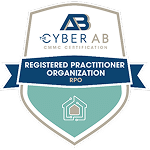The escalating complexity of cyber threats and our increasing dependence on digital technologies have made cybersecurity a top priority for small and medium-sized businesses (SMBs). Cybercriminals are now using advanced tools and tactics, including AI and machine learning capabilities, to execute targeted attacks, making it more urgent than ever for SMBs to address cybersecurity.
Recent findings show that 94% of global organizations have suffered at least one cybersecurity attack in the past year, up from 64% in 2019. This attack surge has heightened vulnerabilities, with 89% of organizations fearing potential targeting in the next six months.
This article provides essential information on SMBs’ challenges in the cyber threat landscape. It offers insights into current and emerging trends and solutions, equipping SMB decision-makers with the knowledge to navigate cybersecurity complexities and protect their businesses.
Evolving Threat Landscape
Artificial Intelligence (AI) and Machine Learning (ML) have revolutionized many industries, including cybersecurity, and have empowered cybercriminals to create more advanced attack techniques. SMBs are increasingly vulnerable to the following threats:
- Ransomware: This malicious software encrypts data and demands a ransom for its release. Cybercriminals increasingly target SMBs, focusing on critical data and optimal ransom amounts. Downtime and data loss can severely impact business operations, making robust backup and recovery systems essential.
- Business Email Compromise (BEC): Scammers use fake emails to trick employees into transferring money or sharing confidential information, exploiting human psychology and social engineering tactics.
- Phishing: Fraudulent attempts to obtain sensitive information by pretending to be trustworthy. Phishing attacks have become more sophisticated, using AI to create compelling and personalized emails that bypass traditional email security filters.
- Supply Chain Compromises: Cybercriminals exploit the interconnected nature of business ecosystems by targeting smaller suppliers to gain access to larger companies. This can disrupt business operations, compromise sensitive data, and damage reputations.
- Credential Stuffing: Automated attacks, utilizing stolen credentials from one breach to gain unauthorized access to multiple accounts, pose a significant threat. SMBs are especially vulnerable due to the common practice of reusing passwords across different systems and services.
Impact on SMBs
The impact of cyberattacks on SMBs can be devastating. Recent data shows that 78% of SMBs fear a major cyber attack could put them out of business, and 60% close within six months of falling victim. Financial strain, loss of customer trust, reputational damage, operational disruptions, and legal repercussions make recovery difficult, highlighting the severe consequences of inadequate cybersecurity measures.
Loss of Customer Trust and Reputational Damages
The long-term impacts of a cyberattack include the loss of customer trust and reputational damage, which are challenging to regain. Compromised sensitive information can drive customers away, leading to decreased revenue and potential market share loss. Additionally, strained relationships with partners and suppliers may occur, thus eroding confidence, which is particularly damaging for SMBs reliant on local community relationships and word-of-mouth referrals.
Operational Disruptions
Cyberattacks can disrupt SMB operations, causing downtime and reduced productivity. For example, a ransomware attack on a manufacturing SMB can halt production, leading to missed deadlines, unfulfilled orders, and significant financial losses. This is especially damaging for SMBs that rely on continuous functioning.
Legal and Regulatory Repercussions
SMBs must comply with data protection regulations in the U.S. and worldwide. Failure to protect customer data can lead to fines, legal action, and other costly consequences, potentially threatening a business’ existence.
Psychological Impact
The psychological impact on business owners and employees is significant. Stress and uncertainty from a cyberattack can lower morale and productivity, adding to recovery challenges. Diverting time and resources from growth to manage the breach can lead to burnout and decreased job satisfaction, further affecting operations.
Challenges Faced by SMBs
Despite recognizing cybersecurity’s importance, SMBs face significant challenges in mitigating cyber threats. Overcoming these obstacles requires a proactive approach, strategic planning, prioritized investments, and employee training.
Some of today’s challenges include:
- Lack of In-House Expertise: Many SMBs lack specialized cybersecurity skills, with 76% of organizations experiencing insufficient in-house expertise. This shortage results in gaps in threat detection, incident response, and overall security strategy development.
- Budget Constraints: Financial limitations are a significant barrier for SMBs in strengthening cybersecurity defenses. Unlike large enterprises with expansive budgets, SMBs must prioritize spending across various areas, often making cybersecurity a lower priority. This constraint limits investments in advanced security technologies and restricts continuous monitoring and proactive threat detection capabilities.
- Outdated Security Practices: Many SMBs rely on outdated security practices and technologies, such as legacy antivirus software or unpatched systems. These defenses are inadequate against modern threats like ransomware, phishing, and advanced persistent threats (APTs). Additionally, the lack of regular updates and patch management leaves SMBs vulnerable to known exploits.
- Complexity of Threats: The cybersecurity landscape evolves rapidly with sophisticated and complex threats. SMBs need help to keep pace, facing various challenges from targeted social engineering to advanced malware. This diversity of attack vectors and cybercriminal motivations complicates implementing comprehensive defense strategies against vulnerabilities.
- Resource Limitations for Compliance: Complying with industry regulations and data protection laws adds complexity for SMBs. It requires dedicated resources for audits, documentation, and adherence to specific security standards. Failure to comply exposes SMBs to legal and regulatory penalties, undermining customer trust and business reputation.
Current Trends in SMB Cybersecurity
To address the escalating cybersecurity threats, SMBs are embracing proactive measures and innovative solutions:
Increased Investment in Cybersecurity
SMBs are significantly increasing cybersecurity spending. According to a ConnectWise survey, 83% of SMBs plan to ramp up investments in cybersecurity solutions (tools and services). This reflects their heightened awareness of the urgent need for robust security measures to defend against evolving threats like ransomware, phishing, and data breaches.
Adoption of Managed Security Services
Many SMBs are working with Managed Security Services Providers (MSSPs) to access specialized expertise and advanced security solutions. MSSPs provide 24/7 monitoring, threat detection, and incident response, helping SMBs enhance their security effectively.
Integration of AI and Automation in Cybersecurity
AI and automation technologies are revolutionizing cybersecurity practices for SMBs. By leveraging AI-driven analytics and automation tools, SMBs can detect, analyze, and respond to threats in real time with greater precision and efficiency. AI-powered solutions enable proactive threat hunting, anomaly detection, and automated incident response, minimizing response times and mitigating potential cyberattack damage.
Emphasis on Cloud Security and Hybrid Workforce Solutions
With the shift towards remote and hybrid work models, SMBs prioritize cloud security solutions. Secure cloud platforms offer scalable infrastructure and robust security protocols, ensuring data protection and compliance across distributed environments. Additionally, SMBs are adopting secure remote access technologies and implementing policies to safeguard sensitive information accessed from diverse locations and devices.
Focus on Compliance and Regulatory Requirements
Amidst increasingly stringent data protection regulations, SMBs are enhancing compliance efforts. Implementing comprehensive data governance frameworks and aligning cybersecurity practices with regulatory mandates helps SMBs mitigate legal risks and safeguard customer trust. Compliance-focused cybersecurity strategies ensure adherence to industry standards and regulatory requirements, reinforcing organizational resilience against potential breaches and penalties.
The Role of Managed Security Service Providers
MSSPs play a pivotal role in fortifying SMBs’ cybersecurity defenses, acting as strategic partners in navigating the complex landscape of digital threats. Their contributions extend beyond mere service provision to become integral components of proactive cybersecurity strategies tailored to SMBs’ needs.
Enhanced Security Solutions
MSSPs offer SMBs access to a spectrum of advanced security solutions that are typically beyond the reach of in-house capabilities. This includes:
- Continuous Monitoring: MSSPs employ sophisticated tools and techniques to monitor networks and systems 24/7. This proactive approach helps detect anomalies and potential threats in real time, minimizing the risk of breaches and data loss.
- Threat Detection and Prevention: Leveraging AI-driven technologies and threat intelligence, MSSPs can identify emerging threats and patterns indicative of malicious activity. This early detection enables preemptive action to mitigate risks before they escalate into full-scale attacks.
- Incident Response and Remediation: In the event of a security breach, MSSPs are equipped to execute swift and effective incident response plans. This includes isolating affected systems, containing the breach, and restoring operations promptly to minimize downtime and financial impact.
Compliance and Risk Management
- Regulatory Compliance: MSSPs assist small and medium-sized businesses (SMBs) in adhering to industry standards and regulations such as GDPR, HIPAA, and PCI-DSS, which helps them avoid fines and build customer trust.
- Risk Assessment and Management: MSSPs perform thorough risk assessments to identify vulnerabilities and develop strategies to address them. By understanding their business’ specific risks, SMBs can prioritize their cybersecurity efforts effectively.
Strategic Partnerships and Future Outlook
The partnership between SMBs and MSSPs is increasingly mutually beneficial, driven by shared interests in reducing cybersecurity risks and maximizing operational resilience. As SMBs continue to face cyber threats, MSSPs are positioned to play an expanding role in:
- Educational Outreach: MSSPs educate SMBs about emerging threats, best practices in cybersecurity, and regulatory compliance requirements. This proactive approach empowers SMBs to make informed decisions and prioritize cybersecurity investments effectively.
- Innovation and Adaptation: MSSPs stay ahead of technological advancements and regulatory changes, ensuring their cybersecurity solutions evolve to address new challenges. This commitment to innovation reinforces their value proposition and secures their position as trusted advisors in the cybersecurity domain.
Effective Cybersecurity Strategies for SMBs
Effective cybersecurity for SMBs requires a proactive and holistic approach encompassing regular risk assessments, ongoing employee training, and investment in advanced cybersecurity tools. Some effective strategies include:
Sign Up for the 360 Cyber Insights Newsletter!
Regular Security Risk Assessments and Management Plans
One of the foundational pillars of robust cybersecurity for SMBs is conducting regular security risk assessments. These assessments help identify vulnerabilities, assess current security measures, and prioritize areas for improvement. By understanding their specific risk landscape, SMBs can tailor their cybersecurity strategies to address the most critical threats they face.
Implementation Tips:
- Schedule Regular Assessments: Conduct comprehensive security risk assessments annually or more frequently if significant changes occur.
- Develop Incident Response Plans: Prepare detailed incident response, disaster recovery, and business continuity plans to mitigate the impact of potential cyber incidents.
- Review and Update Plans: Regularly review and update risk management plans to incorporate new threats, technologies, and business developments.
Employee Training and Awareness Programs
Human error remains one of the leading causes of cybersecurity incidents. Therefore, investing in continuous employee training and awareness programs is essential. Educating employees about common cyber threats, phishing scams, and best practices for data protection can significantly reduce the risk of successful attacks.
Best Practices:
- Regular Training Sessions: Conduct ongoing cybersecurity training sessions for all employees, emphasizing their role in maintaining organizational security.
- Simulated Phishing Exercises: Implement simulated phishing exercises to test employees’ awareness and responses to phishing attempts.
- Promote a Security Culture: Foster a culture of cybersecurity awareness where employees feel empowered to report suspicious activities and adhere to security protocols.
Investment in Robust Cybersecurity Tools and Expertise
SMBs often need more internal resources and expertise to combat sophisticated cyber threats effectively. Investing in robust cybersecurity tools and leveraging third-party expertise can provide protection and peace of mind.
Key Considerations:
- Cybersecurity Tools: Deploy advanced cybersecurity tools such as endpoint protection, network monitoring, encryption, and multi-factor authentication (MFA) to secure sensitive data and systems.
- Third-Party Expertise: Partner with reputable MSSPs or cybersecurity consultants to augment internal capabilities and gain access to specialized knowledge and resources.
- Regular Security Audits: Conduct regular audits of cybersecurity measures to ensure alignment with best practices and compliance with regulatory requirements.








